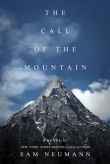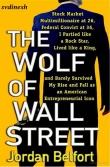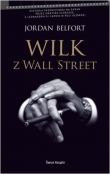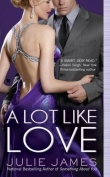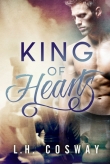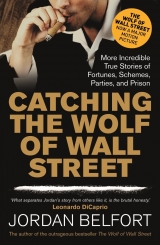
Текст книги "Catch the Wolf of Wall Street"
Автор книги: Jordan Belfort
Жанр:
Биографии и мемуары
сообщить о нарушении
Текущая страница: 9 (всего у книги 33 страниц)
CHAPTER 8
STINKOSLOVAKIA
 fter chirping like a canary for more than seven hours, day one of singing on Court Street had finally come to a close. I had gotten as far as my first day as a licensed stockbroker, which, by sheer coincidence, was October 19, 1987, the day of the Great Stock Market Crash. My four captors, as well as my own attorney, had found great irony in that. After all, between my first day of dental school, my first day in the meat business, and my first day on Wall Street, I seemed to have the Midas touch, in reverse: Everything I touched turned to shit.
fter chirping like a canary for more than seven hours, day one of singing on Court Street had finally come to a close. I had gotten as far as my first day as a licensed stockbroker, which, by sheer coincidence, was October 19, 1987, the day of the Great Stock Market Crash. My four captors, as well as my own attorney, had found great irony in that. After all, between my first day of dental school, my first day in the meat business, and my first day on Wall Street, I seemed to have the Midas touch, in reverse: Everything I touched turned to shit.
Yet, on the flipside of that, there was no denying that I had a certain resilience to me. The way Magnum had put it, if someone were to flush me down a toilet bowl I would come out the other side holding a plumber's license. And while Magnum's words had been greatly appreciated, I was completely certain that there was no plumber's license waiting for me on the other side of thistoilet bowl.
Right now I was in the limousine again, on my way to Old Brookville, where I would place myself back under house arrest, reduced once more to a prisoner within my own home as well as an emotional piñata for the Duchess to swat around. As always, the babbling Pakistani was behind the wheel, but he hadn't uttered a word since we'd left Sunset Park thirty minutes ago, when I'd threatened to cut his tongue off if he didn't stop talking.
At this moment we were on the Long Island Expressway, somewhere near the Queens-Long Island border. It was the tail end of rush hour, at that hour of dusk where the streetlights come on but make little difference. As we crawled along at a snail's pace, I stared out the window, lost in thought.
The Great Crash of 1987 was the pivotal point of my life, an exceptional happening from which all other happenings would unfold. The Dow had dropped 508 points that Black Monday in a single trading session, sending the longest bull market in modern history to a screeching halt.
In truth, I had been nothing more than a casual observer, not just of the crash but also of the fabulous run-up that preceded it. In the summer of 1982, in the wake of slashed income-tax rates and plummeting interest rates, runaway inflation had finally been tamed, and Reagonomics was the rage of the day. Money had become cheap, causing the stock market to catch fire. Michael Milken had just invented junk bonds, turning Corporate America upside down on its ear. Hostile raiders like Ronald Perelman and Henry Kravis, a new breed of financial celebrity armed with war chests of cash raised by Milken's junk bonds, were becoming household names. One by one, they were bringing America's largest corporations to their knees through hostile takeovers. TWA, Revlon, RJR Nabisco… who would be next?
By October of ‘87 the euphoria had reached its peak, as the Dow crossed the 2,400 mark. The era of the yuppie was in full swing, and there was no end in sight. And as the Michael Falks of the world raked in the dough, people like Bill Gates and Steve Jobs were changing the world. It was the dawn of the Information Age, and it hit with the force of an atomic bomb. Lightning-fast computers were appearing on every desktop; they were powerful, intuitive, and they had shrunk the world to a global village.
For Wall Street, this opened vast possibilities: Faster computers yielded massive increases in trading volume, as well as cutting-edge financial products and novel trading strategies. The financial products, called derivatives, allowed large institutions to hedge their investment portfolios like never before, and the trading strategies, the most exciting of which was called portfolio insurance, began fueling the buying frenzy itself.
In a financial farce of Kafkaesque proportions, portfolio insurance caused advances in the Dow to stimulate computers to spit out massive buy orders for derivatives, which then caused the Dow to advance even further, which stimulated those very same computers to spit out even morebuy orders for derivatives… and on and on it went. Theoretically, it could have gone on forever.
Actually, it couldn't have, because the two numnuts who'd invented portfolio insurance had programmed a fail-safe mechanism into the software. In other words, after a certain level of price increases the computers said, “Wait a second—there's something rotten in Denmark! We'd better sell all the stock in our portfolios as fast as our silicone wafers will allow!”
That's when the problems started. In a real-life version of The Terminator,computers turned on their masters and began spewing out endless waves of sell orders at the speed of light. At first, the market declined sharply; that was bad. But, alas, the computers kept right on selling, and by midday, the volume was so enormous that the computers on the floor of the New York Stock Exchange couldn't keep up. And that was tragic, because just like thateverything came to a grinding halt.
Meanwhile, stockbrokers, being stockbrokers, stopped answering their phones, thinking: What's the fucking point of listening to my irate clients scream, “Sell, God damn it! Sell!” when there're no buyers around to sell to? So instead of holding their clients’ hands and telling them everything would be okay, they leaned back in their seats and put their crocodile shoes up on their desktops and let their telephones ring off the hook. By four p.m., the Dow had plunged twenty-two percent, half a trillion dollars had vanished into thin air, investor confidence had been shattered, and the era of the yuppie had officially come to a close.
Now, more than a decade later, as I'd recounted those events to my captors, I felt strangely detached from them, as if the young man who'd lived through all that—some poor schnook named Jordan Belfort—was a complete stranger to me, someone whose life story I had been narrating in the first person for the sake of simplicity. And odder still was how I had conveniently omitted the personal impact those events had had on me, especially when it came to my marriage to my first wife, Denise, who I'd wed three months prior to the crash. We were both broker than broke. Yet we knew that success was right around the corner. So we had hope and we had faith—until the crash.
And that was where I'd left off: Jordan Belfort had just left the boardroom of LF Rothschild with despair in his heart and his tail between his legs. He was a broken twenty-five-year-old with one personal bankruptcy under his belt and a license to sell stocks that had suddenly become worthless.
Ironically, inside the debriefing room I had grown disturbingly comfortable as the day wore on. Losing myself in the past had allowed me to block out the pain of the present, especially my sense of loss regarding the Duchess. And despite the fact that I knew I was ratting, the information I'd provided was strictly historic-sketching only broad strokes about things marginally illegal. The ninety-seven people on my villains, thieves, and scoundrels list still seemed reasonably safe.
Then the Bastard burst my bubble.
It was a few minutes before five when Joel had said, “We need to put the history lesson on hold for a while. We're fighting a time clock with your cooperation…” and then he went on to explain that there was only so long my esteemed status as a rat could be kept secret. There were telltale signs when someone was cooperating, starting with the court record, which in my case would be conspicuously dull. In other words, there were certain motions filed when a defendant was taking a case to trial, motions that wouldn'tbe filed if he was singing on Court Street.
In practical terms, explained the Bastard, there would be two distinct aspects to my cooperation: historical ratting and proactive ratting. Up until now I had been engaged only in the former. Now, however, the Bastard had asked me to make a recorded phone call to one of the soon-to-be-sorry souls on my villains, thieves, and scoundrels list. And, the Bastard had chosen of all people, my loyal and trusted accountant, Dennis Gaito, aka the Chef.
Dennis Gaito was, indeed, a chef, although not in the traditional sense of the word. It was a nickname born out of love and affection and one that had been earned as a result of his natural propensity to cook the books. He was a man's man, calm, cool, collected. He lived for world-class golf courses, Cuban cigars, fine wines, first-class travel, and enlightened conversation, especially when it had to do with figuring out ways to fuck over the IRS and the Securities and Exchange Commission, which seemed to be his life's foremost mission.
In his mid-fifties now, the Chef had been cooking the books since the early seventies, while I was still in grade school, cutting his teeth under the watchful eye of Bob Brennan, one of the greatest stock jockeys of all time. Bob's nickname was the Blue-eyed Devil—a testament to his steel-blue eyes, devilish trading strategies, and the icy-cool blood that ran through his veins, which was rumored to be two degrees cooler than liquid nitrogen.
The Blue-eyed Devil was the founder of First Jersey Securities, which in the late seventies and early eighties had been a penny-stock operation of unprecedented scope and scale. The Chef had been the Devil's accountant, as well as his chief confidant. As a team, they were legendary, leaving a swarthy trail of unadulterated stock fraud in their wake. And unlike mostpenny-stock guys, the Blue-eyed Devil had walked away with all the marbles, nearly a quarter billion of them.
Therein lay the rub: The Blue-eyed Devil had gotten away with it. He'd outwitted the regulators every step of the way, and there was nothing that the Bastard wanted more than the head of the Blue-eyed Devil on a platter.
Just then the voice of Monsoir snapped me back to the present. “This traffic is brutal!” he declared. “It is a wonder we will ever make it back to Brookville. Don't you think, boss?”
“Monsoir,” I said gently, “you happen to be a damn good driver. You never call in sick, you never get lost, and, being a Muslim and all, I don't think you can even drink!” I nodded in admiration. “That's why I have two kind words for you.”
“Oh, yeah, boss, what's that?”
“Fuck—off!” I snarled, and I pushed a button on the overhead console and watched the babbling Pakistani's head disappear behind a felt-covered divider. I stared at the rich blue felt for a good few seconds, and my eyes lit on three gold-colored letters—an N,a J,and a B—which stood for Jordan and Nadine Belfort. The letters had been embroidered onto the felt, in 18-karat-gold thread, written in Gothic-style script. What a fucking mockery!I thought. Such reckless spending! Such wanton excess! And all so meaningless now….
My mind went roaring back to the Blue-eyed Devil and the Chef. In truth, I hadn't really danced with the Devil, so I couldn't implicate him in any wrongdoing, at least not directly. The Chef, however, was a different story. We had cooked up a thousand nefarious schemes together, too many to even count. Ironically, I had decided to exclude him from my Swiss activities, fearful at the time that his relationship with the Blue-eyed Devil would bring heat to me.
Alas, four years later—which is to say, a few hours ago—the Bastard and OCD had found this exclusion difficult to swallow. It made no sense, the Bastard argued. “Why would you keep the Chef out of this?” he'd asked skeptically. “You include him in everything else and leave him out of this? It doesn't jive—unless, of course, you didinclude him and you're just trying to protect him!” With that, the Bastard had pulled out a stack of old travel records relating to a trip I'd taken to Switzerland back in the summer of 1995, and, by no coincidence, it was a trip the Chef had accompanied me on. Even more incriminating was that after we'd departed Switzerland, rather than flying back to the United States, we made a brief pit stop behind the former Iron Curtain, in Czechoslovakia. According to the Bastard's records, we'd stayed there for less than eighteen hours, literally flying in and out. Something about that didn't sit right with the Bastard; after all, for what possible reason would we do that, other than to drop off cash or open a secret account or cook up a scheme? Whatever we'd done, the Bastard knew I was hiding something, and he wanted to know what it was.
Meanwhile, I could only scratch my head. The Bastard was so far off the mark it was literally mind-boggling. Having no other choice, though, I recounted that excursion in intimate detail, starting with Switzerland, explaining that my sole purpose for being there was to do damage control. I had been trying to wind down the latest in a series of horrific debacles, the sum of which had landed me in the room in which I was now sitting. Thisparticular debacle had to do with the untimely death of the Duchess's lovely aunt Patricia, who, unbeknownst to the Duchess, I'd recruited into the heart of my money-laundering scheme.
I had convinced my wife's favorite aunt—a sixty-five-year-old retired British schoolteacher who'd never broken a single law in her entire life—to break more than a thousand of them in one swift swoop, by acting as my Swiss nominee. And the moment she agreed, I began stashing millions of dollars in numbered accounts tied to her name. Then, without warning, she died of a stroke, throwing those millions into limbo.
At first I'd thought her death would cause me great problems, the most obvious of which was that my money would be tied up in the seedy underbelly of the Swiss banking system for all eternity. But I had been wrong, because the Swiss were adept at such matters. To them, the death of a nominee was a huge positive, something to which one cracks open a bottle of champagne. After all, the best nominee is a dead nominee, or so I was told by my blubbery Swiss trustee, Roland Franks, 1*an affable three-hundred pounder with a voracious appetite for sweets and an unworldly gift for creating forged documents that supported a notion of plausible deniability. And when I had asked my Master Forger why that was so, he shrugged his fat shoulders and said, “Because dead men tell no tales, my young friend, nor do dead aunts!”
Meanwhile, as I had recounted all this sordidness to my captors, I had focused in on the fact that the Chef and I weren't alone on the trip; we'd brought company with us, in the form of Danny Porush, my erstwhile partner-in-crime, and Andy Greene, my loyal and trusted attorney, who was better known as Wigwam.
I had freely admitted that Danny hadbeen my partner in all this. “He's as guilty as I am,” I'd declared to the Bastard, and then I swore to him that Wigwam and the Chef had had no part in it. They were merely coming along for the ride to Czechoslovakia, I said, which was our next stop on the trip. Neither of them knew that Danny and I had already smuggled money to Switzerland; they just thought we were there to scope things out for future reference.
By this point in the story, the Bastard and OCD seemed to be buying into it, so I plunged into the next leg of our excursion, to Czechoslovakia, explaining how our venture there was part of a failed attempt to corner the market in Czech vouchers, which the new government had recently issued to its citizens as a means of privatizing the economy. Yet, beyond that, I found myself unable to come completely clean with my captors. After all, what had transpired in Czechoslovakia was so utterly decadent that they would never have understood. So, instead, I gave them a calmer, more watered-down version of things, lest they view me as a complete social deviant, who was not worthy of a 5K letter. It was only now, two hours later, that I could fully relish the insanity that had defined that leg of the journey.
It had all started inside the private jet, which was a Gulfstream III. Like all Gulfstreams, this one had a plush, roomy cabin finished in mellow beige tones. The seats were as big as thrones, and the twin Rolls-Royce engines had been fitted with the latest Hushkits, making the ride so quiet that all you could hear was the gentle hum of turbofans as air swept past the fuselage at 550 knots.
It was early evening, and we were high above southern Poland, although I was a good deal higher than that. But I wasn't nearly as high as Danny, who was sitting across from me and had completely lost the power of speech. He was in the latter half of the drool phase, which is to say, he was at that point of his high where he could no longer get the words out without a river of saliva dripping down his chin.
“Iz iz guz zehnzamea!” he exclaimed, with a thick gush of saliva. Over the last two hours he'd consumed four Quaaludes, nearly a pint of Macallan's single-malt scotch, twenty milligrams of Valium, and a two-gram rock of Bolivian marching powder, which he'd Hoovered up his nostrils through a rolled-up hundred-dollar bill. Then, about ten seconds ago, he'd taken a hit from a thick joint of Northern California sinsemilla, which led me to believe that what he had been trying to say was: “This is good sinsemilla!”
As always, I found it literally mind-boggling how normal Danny looked. What with his short blond hair, average build, and boiling white teeth, he gave off a wonderfully WASPy whiff, the sort of whiff you would expect from a man who could trace his genealogy back to the Mayflower.He was dressed casually this evening, in a pair of tan cotton golf pants and matching short-sleeve polo shirt. Over his pale-blue eyes he wore a pair of conservative horn-rimmed glasses that made him look that much more refined, that much WASPier.
Yet, with all this WASPiness, Danny Porush was a purebred Jew who could trace his roots back to a tiny kibbutz near Tel Aviv. Nevertheless, like many a Jew before him, he tried to be mistaken for a blue-blooded WASP—hence, those wonderfully WASPy glasses, which had clear lenses in them.
Meanwhile, the interior of the cabin looked like a flying DEA seizure locker. Between Danny and me, on a mahogany foldout table, a brown leather Louis Vuitton shower bag was overflowing with a fabulous medley of dangerous recreational drugs—a half ounce of sinsemilla, sixty pharmaceutical Quaaludes, some bootleg uppers, some bootleg downers, a sandwich bag full of cocaine, a dozen hits of Ecstasy, and then the safe stuff, from the doctors: a vial of Xanax, a vial of morphine, some Valiums and Restorils and Somas and Vicodins, and some Ambiens and Ativans and Klonopins, as well as a half-consumed pack of Heineken and a mostly consumed bottle of Macallan's to wash things down. Pretty soon, though, all the nonprescription stuff would be gone, shoved up our collective assholes or buried deep beneath our scrotal sacs, as we negotiated our way through Czech Customs.
My trusted attorney, Wigwam, was sitting to Danny's right. He was also dressed casually, although, in his case, he also wore his perpetually glum expression and horrendous-looking toupee. It was mud brown in color, a poor match to his pale complexion, and had the consistency of desiccated straw. In fact, despite the Iron Curtain coming down four years earlier, it was still a safe bet that his horrific hairpiece would draw some second looks from the Czechs.
In any event, Wigwam was buzzed too, although, as our attorney, he was held to a higher standard. He understood that he was not to get sloppyuntil afterwe'd finished dealing with the Czechs. So he'd gone heavy on the coke and light on the Ludes. It was an inspired strategy that made perfect psychotropic sense; after all, taking a Quaalude was like drinking three bottles of grain alcohol on an empty stomach, while snorting cocaine was like consuming eight thousand cups of coffee intravenously. The former made you sleepy and sloppy, while the latter made you pumped up and paranoid. Insofar as business was concerned, it was more effective to be pumped up and paranoid than sleepy and sloppy. But, alas, Wigwam had accidentally snorted himself into a coke-induced paranoia.
“Jesus H. Christ!” Wigwam muttered. “This cabin reeks of skunk weed! Can't you put that shit out, Danny? I mean… we're… we're… we're”– spit it out, Wigwam-“we're gonna end up in Czech jail, for Chrissake!” He paused, wiping the beads of sweat that had formed on his pale, paranoid brow. He was actually good-looking, in a boyish sort of way. He was average height, with fine, even features, although he had a bit of a paunch going. “I'm gonna get disbarred,” he moaned. “I know it. Ughhhhhhh ….” It was a paranoid drug groan, and as soon as he'd finished groaning he put his toupee in his hands and shook his egg-shaped skull in despair.
The Chef was sitting to my left, and he was straight as an arrow. In fact, he'd never done a drug in his entire life—being that rare breed of man who could surround himself with world-class drug addicts and be entirely okay with it. The Chef was handsome, in a striking sort of way, like a trimmed-down version of Mr. Clean. He was completely bald on top, with a prominent forehead, a very square jaw, piercing brown eyes, an aquiline nose, and an infectious smile.
The Chef was a born-and-bred New Jerseyite, who could lay his Jersey accent on real thick, especially when the occasion called for it, as it did now. “Whaddaya, whaddaya?” the Chef said to Wigwam. “You godda gedda grip dare, Andy! If you're worried about the smell, then turn on them overhead air vents. The pressure is so low ow dare”– out there—“it'll clear the stench out in two seconds flat.”
Indeed. The Chef was absolutely right. “You should listen to the Chef,” I said to Wigwam. “He has uncanny reasoning skills in these situations.” I reached over and placed my left hand on Wigwam's shoulder and offered him a concerned smile. “On a separate note, I strongly advise you to take a couple of Xanax. You need to even yourself out a bit.”
He stared at me.
“You look like a train wreck,” I said. “Trust me, a couple a Xanax is just what the doctor ordered.” I turned to the Chef. “Isn't that right, Chef?”
“Indeed,” the Chef agreed.
Wigwam nodded nervously. “I guess I will,” he said, “but I need to do some housekeeping first.” He rose from his chair and began walking around the cabin and opening air vents. I looked at Danny, who was still smoking a joint. “In spite of our attorney being a cokehead,” I said, “he's got a valid point. Why don't you get rid of that joint just to be safe.”
Danny held up the half-inch-long joint and cocked his head to the side, as if inspecting it. He turned the corners of his mouth down and shrugged, then threw the joint into his mouth and swallowed it. “Eating possgets you fucked up!” he slurred proudly.
Just then Wigwam sat back down, his jaw still doing a coke addict's version of the Latin hustle. “Here,” I said, grabbing the appropriate vial from the LVbag. I unscrewed the cap and poured out a few pills. “The correct dosage is two blues…” I paused, thinking for a moment, “although at this altitude there's no way to be sure. The body might be more susceptible up here.” I shrugged.
Wigwam nodded nervously, still trapped in the deep trough of the worry phase. If I plunged into the story of how he'd lost his hair while still in high school and then got caught cheating on his SATs, there was a better than fifty-fifty chance he would make a mad dash for the emergency exit and jump. But I took pity on him and said nothing.
I turned to the Chef and smiled respectfully. “Getting back to business,” I said, in hushed tones, “I wasn't all that impressed with the people I met in Switzerland, so I'm not going forward with them. They didn't seem trustworthy enough.” I shrugged again. That was a lie, of course, and as much as I hated lying to the Chef, I had my reasons.
Back in the United States, an obsessed FBI agent named Gregory Coleman was hot on my trail, and I needed to set up false trails for him to follow, to divert his attention away from my realSwiss accounts. I would have the Chef assist me to that end—opening a Swiss account for me that I would never actually fund but whose existence I would leak to Agent Coleman. And when Coleman petitioned the Swiss government to open my account, I would fight him tooth and nail on it, as if I actually had something to hide. It would keep him occupied for a good two years, I figured, maybe even more. And when he finally did gethis way and the account was opened, he would find out that I had never actually funded it.
In essence, the joke would be on Coleman, and my realbusiness would go on undisturbed. With that in mind, I said to the Chef, “So let's do the stuff you talked about before. What do I gotta do to get things started?”
“You don't gotta do nothing,” replied the Jersey Chef, using a double negative to reinforce how little I had to do. “I got the whole thing set up for you—trustees, nominees, and I can be an adviser to the trust. That'll put another buffer between you and the money. And God forbid the boys downtown start snooping around, then I resign as adviser and the money disappears into Liechtenstein and, youknow… Schhhwiitttt!”—and he clapped his hands and slung his right arm out toward southern Romania– “we'd be good to go then.”
I smiled at the Chef and nodded warmly. He was a man of many talents, the Chef, although his most remarkable was his ability to use an intricate combination of hand gestures and blowing sounds to get his point across. And my favorite was Schhhwiitttt,which he elicited by curling his tongue into a reverse C and then forcing out a gust of air. And as he made the Schhhwiittttsound he would clap his hands, sending his right arm flying out into the distance. The Chef used this sound when he was tying up loose ends of a cover story, as if to imply, “Yeah, and with that last phony document we've created, you know… Schhhwiitttt!…there's no way the feds will ever be able to figure things out!”
In retrospect, as I now sat on the Gulfstream, I knew I'd made a colossal blunder in not using one of the Chef's many fabulous recipes to satiate my Swiss banking appetite. But his relationship with the Blue-eyed Devil had spooked me. It was common knowledge that they were doing business in Switzerland, and, as hot as I was, the Blue-eyed Devil was that much hotter, and they stillhadn't been able to catch him! So how did that bode for myplight? Rather well, I figured. Like the Devil, I was a careful man, always going to great lengths to cover my tracks.
I held on to that happy thought as I reached into my medicine bag and broke out the Valium, downing three blues. It was a lion's dose, I knew, but given the amount of coke I'd snorted, it was just what I needed to get me safely to Czechoslovakia.
Rather than going through the main terminal at Prague's Ruzyně Airport, the Gulfstream was directed to a small private terminal that, up until a short time ago, had been reserved for communist dignitaries. That suited me just fine, given my current state of intoxication, but as they led us to a room that looked like the inner sanctum of the Kremlin, there was something bothering me, something I couldn't quite place my finger on. Danny was standing beside me, looking disturbed. “You smell something?” I asked, scrunching up my nose.
Danny scrunched up his own nose and took two deep snorts. “Yeah,” he replied. “What the fuck is that? It smells like… I don't know, but I don't like it.” He took two more snorts.
I turned to Wigwam. “You smell something?” I whispered.
Wigwam darted his eyes around the room like a wild animal. “It's poison gas,” he said nervously. “I… I gotta get my passport back. I… please… I'm gonna lose it.” He put his index finger to his mouth and began biting his nail.
The worries, I thought. I leaned over to the Chef. “You smell something, Chef?”
He nodded. “Yeah, it's fucking body odor!” he declared. “These commie bastards don't use deodorant!” He scratched his chin, taking a moment to consider. “Or maybe they can't find it in stores. You'd be surprised how commies forgo the normal pleasantries.”
Just then a smelly middle-aged Czech, dressed in blue-gray police garb, walked over. He eyed us suspiciously for a moment, then motioned to a series of high-backed leather armchairs that had been arranged around an enormous mahogany conference table. Not too shabby, I thought. We sat down, and a uniformed waiter appeared from out of nowhere, carrying a tray of dessert aperitifs, which he placed before us without saying a word.
I looked up at the waiter, who was sweating bullets. “Excuse me,” I said humbly. “Why is it so hot in here?”
He flashed me the look of the disinterested and the lobotomized and then walked away without saying a word. As I reached for my glass, Wigwam warned, “Don't drink the wine!” He began looking around nervously. “That's what they want.”He looked back at me, with wild eyes. “You understand?”
Now the Chef leaned over. “I don't think that guy speaks English,” he whispered, “but when I was getting off the plane the captain told me they're having their worst heat wave in a hundred years. I think today was the hottest day in the country's history.”
Inside the taxi I breathed through my mouth.
“You ever smell anything so vile?” I asked Danny.
Danny shook his head gravely. “Never. The guy needs to be dipped in sulfuric acid.” The Chef nodded in agreement, then added more words of wisdom. “Don't worry,” he said confidently. “We're staying in the nicest hotel in the country. I'm sure there'll be air-conditioning there. You can count on it.”
I shrugged, not entirely believing him. “Is Prague the largest city in Czechoslovakia?” I asked the smelly driver.
Without warning, the driver expelled a giant gob of spit onto his own dashboard. “Slavs are dogs,” he snarled. “They are no longer part of country. We are Czech Republic: Jewelof East.” He rolled his neck, as if trying to regain his composure.
I nodded nervously and looked out the window, trying to take in the beauty of the Jewel of the East, but there were no streetlights and I couldn't see anything. Nevertheless, I was still hopeful; after all, our destination was the fabulous Hotel Ambassador, the only four-star hotel in Prague. And thank God for that! I thought. This leg of our journey seemed to be cursed. A bit of pampering would be just what the doctor ordered!

